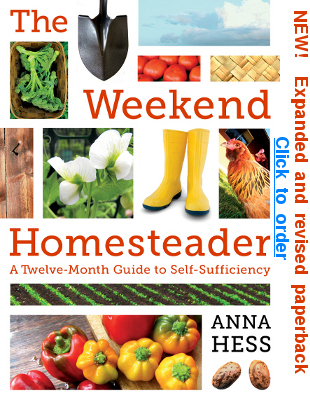
How to get published in 5 easy steps
 Step
1: Dream
Step
1: Dream
When
I was a kid, I dreamed of publishing a book. I didn't care about
the fame, but Daddy had explained the concept of royalties to me, and
the idea of doing a bunch of work and then having money trickle in for
the rest of my life sounded really awesome. Plus, I just loved
books.
Step 2: Strive
I started writing
"novels" in elementary school, but it took until
after college for me to realize that I lacked the life experience to
write good fiction. In the interim, I agonized over a bunch of
young adult fiction, pored over Writer's
Market, and even
sent some "novels" off to publishers to get those mandatory rejection
letters.
Step 3: Check in with reality
 Time passed and I got an actual
job, which I loved and then
hated. After I quit, a local businessman threw a book deal into
my lap --- I'd write about the local flora and fauna, his niece would
format it, and he'd publish it. I hunkered down over my laptop
for a month or two and spewed forth my first non-fiction
book. It
had growing pains, but the breaking point was realizing that when the
businessman said he'd publish it, he merely meant he'd print it.
There was no distribution involved, and I would need to hawk my
book on street corners to get it sold. No way! That was
going to irritate my introvert tendencies more than the job I just
quit. I published the book in ebook format instead.
Time passed and I got an actual
job, which I loved and then
hated. After I quit, a local businessman threw a book deal into
my lap --- I'd write about the local flora and fauna, his niece would
format it, and he'd publish it. I hunkered down over my laptop
for a month or two and spewed forth my first non-fiction
book. It
had growing pains, but the breaking point was realizing that when the
businessman said he'd publish it, he merely meant he'd print it.
There was no distribution involved, and I would need to hawk my
book on street corners to get it sold. No way! That was
going to irritate my introvert tendencies more than the job I just
quit. I published the book in ebook format instead.
 Step 4: Revise the dream
Step 4: Revise the dream
Hmm, ebooks. Now
that's an interesting idea. I churned
out
a few more, getting
better at the process and enjoying writing about a
topic where I really had something to say. After a while, I
realized that I could reach a much wider audience by selling my ebooks
on Amazon rather than just on my website, and with your help, my Weekend
Homesteader
series took off. This was the cat's meow! No need to hold
book signings when I could rely on the power of the internet to sell my
books.
I came to the conclusion
that paper books were good for nothing more
than stroking the author's ego. I figured that if I were a
publisher, I'd cyber-stalk Amazon's independent ebook authors and watch
who sells the most books, then approach them in hopes of publishing the
book in a paper format. I steeled myself for that day --- if a
publisher approached me, I would simply say no.
Step 5: Revisit the dream
I thought the email was spam
at first. But no, it was a small but
established publisher that had several well known books under their
belt. They wanted to publish a full color paperback version of my
Weekend
Homesteader series.
I poised my fingers over the keyboard to say no...then went to tell
Mark instead.
"You know that if you
don't at least ask them for the terms, you'll
always wonder," he told me. "Why don't you email them back and
ask what advance and royalties they'd offer?"
Well, okay. The
editor tossed off some figures on the low end of
normal (8% royalties, $1,500 advance.) I shrugged.
Interesting --- I'd write a post about it after telling the publisher
no.
Instead, I drafted a
lengthy pro-con list. The pro list was short, the con list long,
long, long.
Daddy picked up the
phone right away. "I'm shocked!" he said once
he heard who was there. (Yes, I don't call my father
enough. No, I hadn't told him the reason for my call yet.)
"A publisher wants to
make a print copy of my book," I
told him, then added: "But I think I should say no."
I didn't think I could
ever break Daddy's heart more than when I
decided to live in a trailer, but I could almost hear that essential
organ cracking into two uneven pieces. He immediately started
trying to talk me into it, so I explained my list of disadvantages
one at a time. After "deadlines, angst, stress", my perfectionist
belief that Weekend
Homesteader
isn't ready for prime time, and having to deal with criticism, I asked
him whether accepting the first publisher who comes knocking isn't a
bit like going to the prom with a boy simply because you're flattered
he asked. "No, no!" Daddy said. "It doesn't matter who
publishes your first book! Just who publishes your second.
And, by the way, about your perfectionist tendencies, you've heard of
second editions, right?"
 Finally,
I moved on to the real sticking point --- public
appearances. "You could try asking the publisher how they
distribute the book and what you'd be expected to do," Daddy said
soothingly. So I sent the publisher back an email they probably
don't get often. I told them I was a hermit. I told them
there was no way I was going to market the book in a non-internet
manner. What bookstores did they have their books in, who was
their distributer, how were they going to advertise the book, how
quickly do they remainder? The answers sucked me right in --- not
so much the part about being in mainstream bookstores throughout the
U.S. and Canada (although that was cool), but about being sold in
Tractor Supply. Tractor Supply would really reach my target
audience and help build our "empire"!
Finally,
I moved on to the real sticking point --- public
appearances. "You could try asking the publisher how they
distribute the book and what you'd be expected to do," Daddy said
soothingly. So I sent the publisher back an email they probably
don't get often. I told them I was a hermit. I told them
there was no way I was going to market the book in a non-internet
manner. What bookstores did they have their books in, who was
their distributer, how were they going to advertise the book, how
quickly do they remainder? The answers sucked me right in --- not
so much the part about being in mainstream bookstores throughout the
U.S. and Canada (although that was cool), but about being sold in
Tractor Supply. Tractor Supply would really reach my target
audience and help build our "empire"!
With the invaluable
assistance of my friend's husband (thanks,
Seth!), I poked at the contract
until it felt pretty feasible.
And then...I said yes.
 (If you were hoping that
this post would actually help you get
published, you've probably realized it won't. Those of you who
noticed that the path of my publishing career looks an awful lot like
the way I got a
husband win bonus points.)
(If you were hoping that
this post would actually help you get
published, you've probably realized it won't. Those of you who
noticed that the path of my publishing career looks an awful lot like
the way I got a
husband win bonus points.)
Which is all an
excessively long way of saying that a full color paperback edition of Weekend
Homesteader will
be hitting bookstores in fall of 2012. I'll be dealing with
"deadlines, angst, stress" in February and before then will be asking
all of our ebook readers for their feedback so that the paper edition
glows. For the next little while, though, I'm going to channel
the eleven year old me and tell her that getting published really is
possible and not
to give up.
Want more in-depth information? Browse through our books.
Or explore more posts by date or by subject.
About us: Anna Hess and Mark Hamilton spent over a decade living self-sufficiently in the mountains of Virginia before moving north to start over from scratch in the foothills of Ohio. They've experimented with permaculture, no-till gardening, trailersteading, home-based microbusinesses and much more, writing about their adventures in both blogs and books.
Want to be notified when new comments are posted on this page? Click on the RSS button after you add a comment to subscribe to the comment feed, or simply check the box beside "email replies to me" while writing your comment.

Just stick to your guns about what you're willing to do, and everything else will fall into place. Congratulations!
Sarah in Boulder Creek CA
http://mountainstead.blogspot.com/
Lisa and Rdg --- Thank you!
Sarah --- I'm looking at it as a learning experience. I'll either learn I hate paper publishing, or I'll learn how to do it. Either way, having new skills to perfect makes me happy.
Seth --- You and Melissa are already on my free copy list! I'm eternally indebted to you for your read of the contract --- I never would have seen many of the problematic areas you pointed out. And now the problematic areas are gone.
Debbi --- I'm just glad I reached the stage of my life where I didn't really want to be published before the publisher came knocking. Five years ago, I could have signed the first contract they gave me and thanked them for the opportunity.
There does seem to be a rash of blogs-to-books around. I can see why, from the publisher's point of view. You can tell a lot about a writer's style, timeliness, and readership from a blog.
I'd have to disagree on that one. E-books are nice, but I don't always carry a computer with me. Paper books don't require batteries. And who knows if we can still read todays e-books in 50 years? Additionally, paper books can be appreciated as works of art. I've got some old mould-making books from the late 1950s that are beautifully typeset and illustrated. It is rare to see that quality these days. And I can still read them half a century later. Try reading computer files that were written 40 years ago... You'd be lucky to even find working hardware to access the storage media from those days.
And who knows if we can still read todays e-books in 50 years? Additionally, paper books can be appreciated as works of art. I've got some old mould-making books from the late 1950s that are beautifully typeset and illustrated. It is rare to see that quality these days. And I can still read them half a century later. Try reading computer files that were written 40 years ago... You'd be lucky to even find working hardware to access the storage media from those days.
You know about perfect being the enemy of good? Speaking from experience; while it can be fun to make things perfect, you won't Get Things Done. Because my handwriting is rather bad and I can only remember so much I keep a typeset logbook of work-related stuff like experiment reports. It depends a little, but it is around 200-300 A4 pages per year, with lots of figures and tables. I used to be very detail-oriented in writing it, but at some point it began taking too much time. So I set up my writing environment and tools (LaTeX, memoir, make, gnuplot, python) to my liking and stopped worrying about the details.
Speaking from experience; while it can be fun to make things perfect, you won't Get Things Done. Because my handwriting is rather bad and I can only remember so much I keep a typeset logbook of work-related stuff like experiment reports. It depends a little, but it is around 200-300 A4 pages per year, with lots of figures and tables. I used to be very detail-oriented in writing it, but at some point it began taking too much time. So I set up my writing environment and tools (LaTeX, memoir, make, gnuplot, python) to my liking and stopped worrying about the details.
You seem to have work on the farm very well organized. If you are capable of that, you shouldn't worry about "deadlines, angst, stress" from publishing a book. You already have the tools that you need. Just apply them.
As to criticism; Don't take it personal, because it rarely is. Treat it as a learning experience.
BTW, SP has a rather interesting eccentric array of titles.
On your first point --- I totally agree from the reader's point of view, but I was talking from the author's point of view. As a reader, I like reading fiction in ebook format, but any non-fiction that's going to be referred back to more than once or twice I'd prefer to have as a hard copy. The beauty factor also plays in. And, I have to admit, I know the smells of certain books I read as a child.... But as an author, ebooks are really nice because you can write whatever you want, even if it's not something a publisher is interested in.
You're right that there's a point at which I have to let perfectionism go. I do plan to take it up a notch, though, and work some of the kinks out of the ebooks. It's so easy to make changes in ebooks that I only edit them twice, but I know I'll cringe if any major mistakes make it through onto paper.
I'll try really hard to take your criticism advice to heart, but I think that's going to be the hardest one for me.... The few unhappy chicken waterer customers we get always upset me far too much.
I think that SP has a habit of seeking out independent authors like me who already have something of a following, thus the rather odd combination of titles. On the plus side, everyone I've talked to has heard of at least one of their authors.
You should have another person help you with editing your books. If you spend working on something for too long, at some point you'll loose the ability to spot mistakes. In engineering it is standard practice to have someone else check your calculations. And that's a good thing too, because everybody makes mistakes.
I agree that the internet has made it practical and easy to reach a large audience without much cost, and that is a good thing.
Both giving and receiving feedback is an art, and not everybody is well-versed in it. So if somebody is just venting, feel free to ignore them. It's better for your piece of mind. As for the rest it won't harm to listen to another person's point of view. It doesn't mean you have to accept everything they tell you. But at least you'll have thought about it.
As for the rest it won't harm to listen to another person's point of view. It doesn't mean you have to accept everything they tell you. But at least you'll have thought about it.
Good points, as usual. If I give myself several days between readings, I can usually do a pretty good job editing myself, but even so things slip through. Good thing one of my buddies offered to give Weekend Homesteader a close reading before I send the "final" copy off to the publisher.
And you're right about feedback. When people are being constructive, I actually get a lot out of even negative feedback. I just have a hard time tuning them out if they're just spewing venom.
Well, it's great to hear that many more people will be exposed to your writing! Communicating your work & thoughts is a great talent of yours and I have thought from the beginning that the Weekend Homesteader should be a in print. Maybe it's just an ego thing (for the author), but I think there are plenty of people who prefer to read on real material, and don't want to go through the trouble of printing & binding dozens of ebook pages. Real books/publications still have a place in this world!
I'm very glad to hear it and you seem to be an excellent business manager as well, so I doubt there is anything to worry about when it comes to the direction that this can take you. Good luck
Sara --- That's my thinking too --- the more people exposed, the better. (Sounds like I'm a virus trying to spread my DNA. )
)
John --- Thank you!
WooooHoooo! I'm so excited for you. I'm enjoying your eBooks, but paper books - there's just something about them....the portability, the lack of battery power needed, the interesting smells (like you described).... By the way, my meat chickens are totally enjoying your chicken waterers. Thanks!